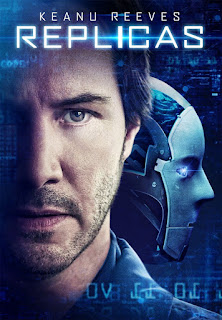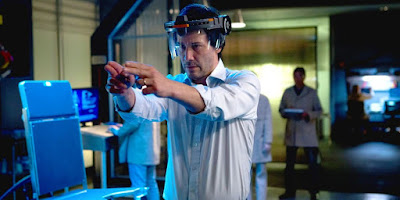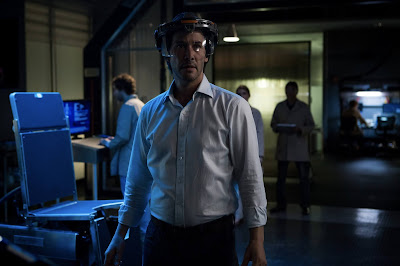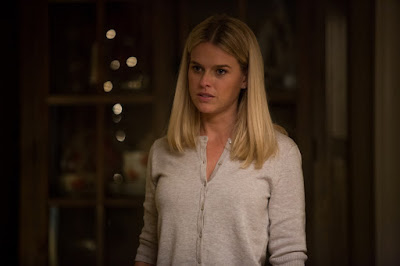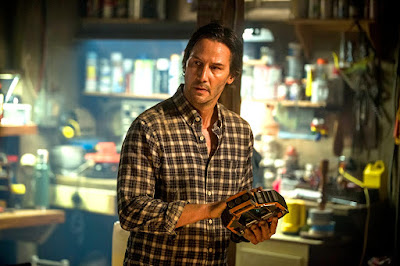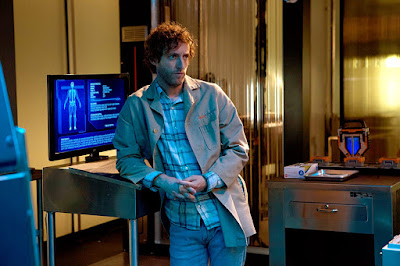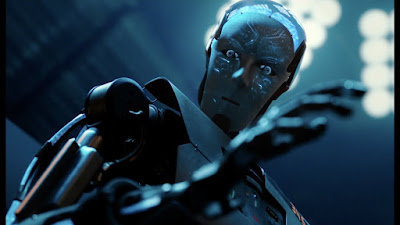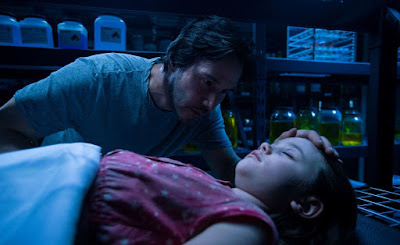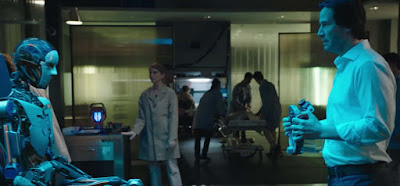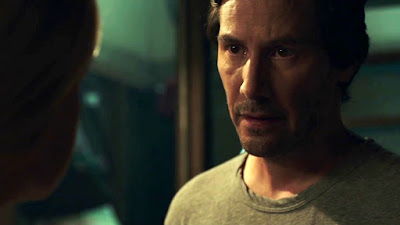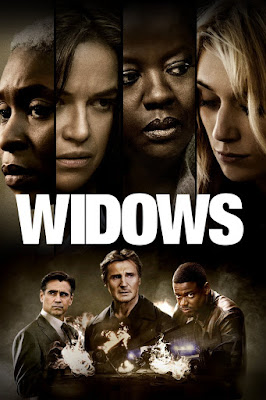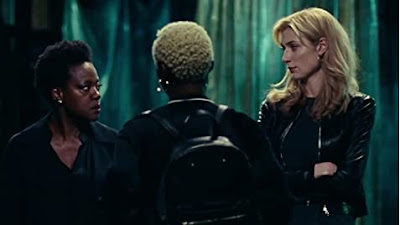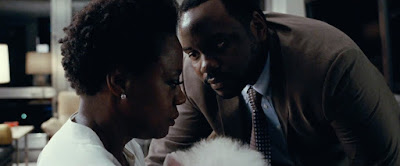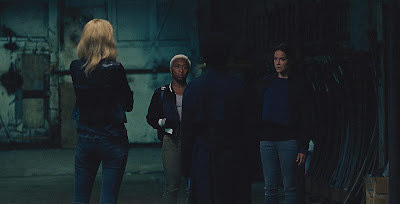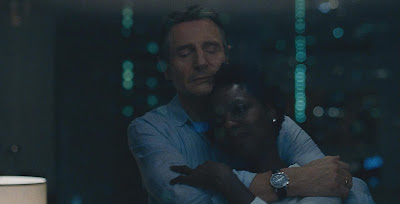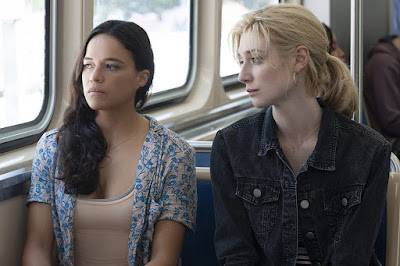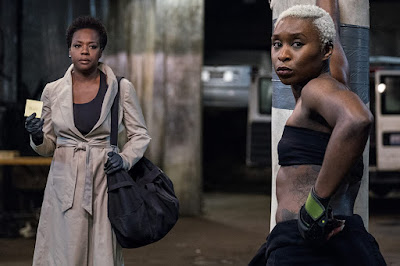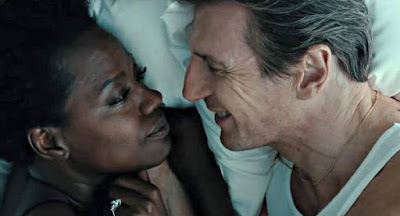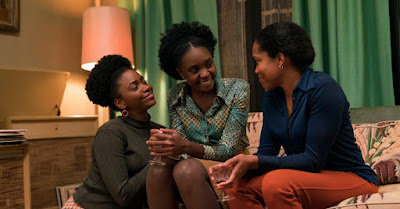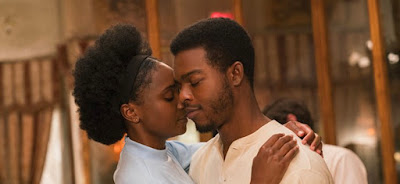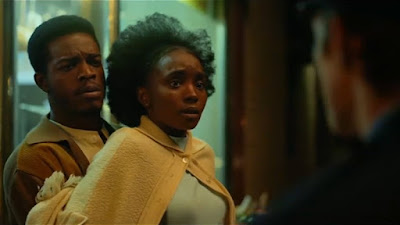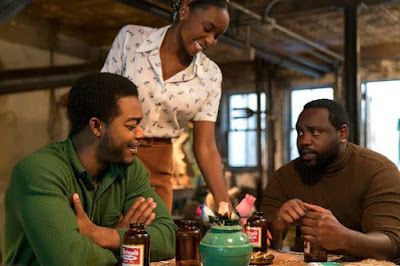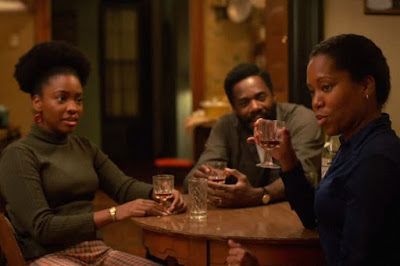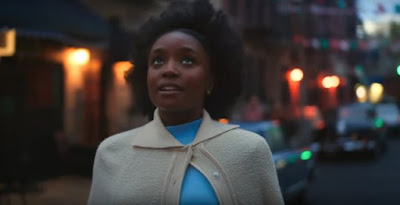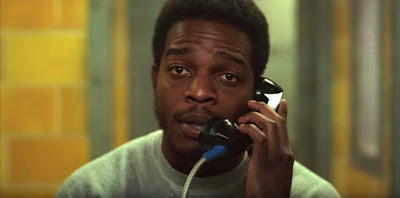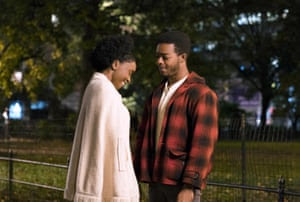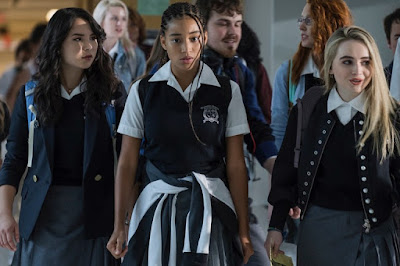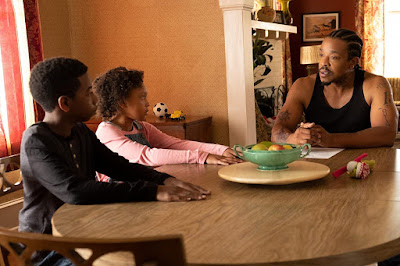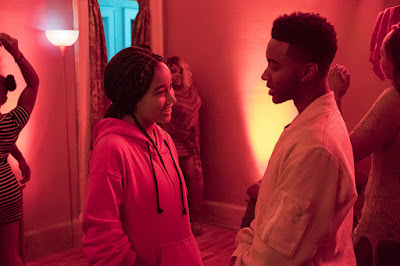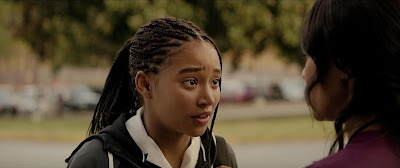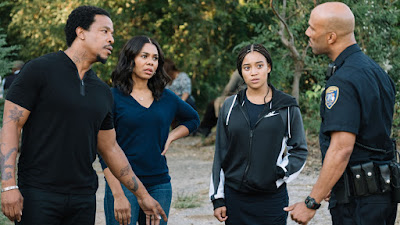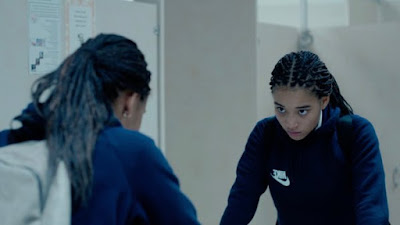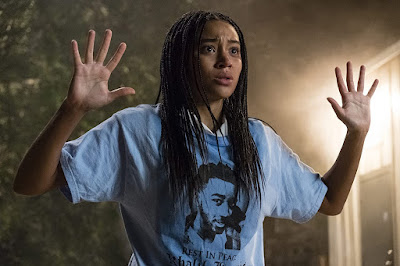When it comes to popular Hollywood genres that sell with audiences, one genre that studios often find dependable in terms of financial success is that of science fiction. The latter provides both studios as well as audiences with a wide variety of stories and concepts to go off with many being based on previously established source material. In the case of
Replicas, the filmmakers aim to craft an intriguing science fiction story based around the concept of cloning while taking it in a different direction than what's previously been seen before. The most recent science fiction films to tackle the theme of cloning have been
The 6th Day with Arnold Schwarzenegger, Michael Bay's
The Island with Ewan McGregor and Scarlett Johansson, and 2019's
Gemimi Man with Will Smith in the lead role. With
Replicas, the filmmakers aim to put their own spin on the concept of cloning while utilizing Keanu Reeves as the main star of the film. Despite
Replicas noble efforts to give audiences a unique Sci-Fi tale, that poses some thoughtful questions regarding the idea of cloning, the end result is a mildly entertaining to painfully mediocre effort that pales in comparison to the previous films that took its concept and handled it much better (
The 6th Day and
The Island anyone). For audiences, that lies a disappointment in itself given that the film has a premise that carried promise along with a reliable lead actor who understands the films concept of loss and wanting to gain back what was taken.
The plot for
Replicas centers around a neuroscientist (Played by Keanu Reeves) working to build a synthetic human brain, that can ultimately be used to transfer the minds of the recently deceased to artificial bodies. When both his wife and children end up dying in a car accident, he uses his resources to transfer their consciousness with the help of a colleague (Played by Thomas Middleditch). Although he succeeds in doing so, repercussions soon emerge with the researchers being forced to deal with the consequences. On paper, the concept for
Replicas sounds strong and promising with the story posing some noble questions for the audience regarding the concept of cloning, and whether they would or should do it if such technology was available to them. The film is noteworthy in its intentions to explore themes regarding loss and how far one is willing to go to cheat death, though the overall problem with the films lies within the fact that the rest of the film doesn't meet the scope nor energy that the concept requires in order to achieve maximum effect.
Replicas is a film that could've been so much more than what it ultimately ends up being and ultimately should've. The directing feels standard rather than attempt to give the film a visual presence of its own, with the films CGI effects being painfully awkward to the point of being distracting with their poor quality. Looking at many of the themes the film covers as well as its overall story, it's no mystery as to why Keanu Reeves took an interest in the film as the main character experiences a loss of his entire family (Something that Reeves himself can relate to as his ex-gf and their unborn child were both killed in a fatal car crash in 1999). One can calculate that it was that part of the script, as well as the question the film poses of whether one should clone their loved ones back to life if the opportunity was there, that drew Reeves to the film. While the film clearly had the right actor in the main role with a serviceable cast backing him up, its ultimately the films lack of enthusiasm and creativity behind its directing and writing, that bring it down from being potentially great to passable yet forgettable entertainment with painfully bad CGI.
Replicas is a film where the concept stands out much more than the rest of the film.

One of the films few saving graces is the performances of its main cast, all of whom deserve far better material than what they're ultimately given. The ones presented here make the most of their roles and attempt to make the film something more engaging than what it ultimately is. The strongest performance of the film comes from Keanu Reeves in the main role as research neuroscientist William Foster. Reeves is mostly known for giving wooden performances in his roles typically with his facial expressions tending to appear rather emotionless, though here he manages to put a lot of himself in the role as he injects a lot of emotion and humanity to his character. He's not the strongest actor around but give him the right role that resembles his personality and he can perform just well enough. Alice Eve gives a likable yet somewhat robotic performance as William's wife, Mona Foster with her performance being both a hit and miss. Eve plays Williams wife in both human and clone form convincingly well with her sharing solid chemistry with Reeves along with playing a clone, that begins to slowly suspect that William hasn't been totally truthful with her regarding what happened with the crash. Her two most common facial experiences are either extremely happy or extremely worried. Thomas Middleditch does well playing William's partner and family friend Ed Whittle, who becomes increasingly concerned about his partners obsession with bringing his family back. He takes his part and makes it work while smoothing over some of his weak dialogue. John Ortiz is effective as Jones, William's boss at Bionyne as well as essentially being the films main antagonist. Ortiz's role may come across as feeling generic with his performance appearing to just be going through the motions of being a typical corporate villain in a science fiction story, but he makes it work here and gives the film the antagonist that's needed. The rest of the cast is notable with Emjay Anthony as William's son Matt Foster, Emily Alyn Lind as William's oldest daughter Sophie Foster, and Aria Lyric Leabu as WIlliam's youngest daughter Zoe Foster. Overall, the performances delivered in
Replicas aren't the greatest but prove to be serviceable enough to help bring both believability and realism to to the film. The actors genuinely do appear as if they're trying their absolute best to make their characters as well as the story work. Regardless of how audiences feel about the rest of the film, the attempts of the actors to deliver reasonably decent performances is noticeable here.
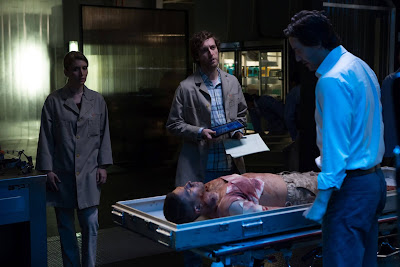
One of the films biggest letdown is the lack of passion and creativity from its main filmmaker. The films directing by Jeffrey Nachmanoff despite being serviceable work, ultimately feels uninspired and standard with the film feeling more like a direct to DVD Sci-Fi drama rather than taking a form of its own visually as a Hollywood film. Although the film was given a budget of $30 million, it doesn't look like Nachmanoff made much effort to be creative with the film to show something interesting or impressive to audiences as the film ultimately carries with it a B- low budget movie feel with it. The robotic replicants have laughable CGI that comes across as ultimately appearing to be substandard, making them look like a cheap and watered down version of the machines from
I Robot. The films cinematography is decent work though it isn't anything groundbreaking to write home as the film lacks the visual cinematic appeal of previous cloning films such as Michael Bay's
The Island or the futuristic visual landscape of
The 6th Day. With the films somewhat plausible production design,
Replicas visual look shows hints of a futuristic type world, though the latter never becomes fully realized for the audience to experience (Which probably can be contributed to it's surprisingly low budget, that ultimately holds the film back in terms of taking risks technologically). The film moves at a fast-pace which often feels too quick given the type of story this film carries. The latter cloning films carried running times of over two hours with
Replicas running time clocking in at a brisk 103 minutes. An extra 20 minutes devoted to further developing the plot and characters wouldn't have done the film any harm, as it often feels that it moves too quick considering the story and important questions it wants to cover and ultimately ask. In terms of directing, Nachmanoff's work here isn't terrible but feels painfully standard as if the film could've been made for the Sci-Fi channel. It lacks the grand technological elements to give the story the visual presence it demands to keep the audience engaged in the story. Despite a few reasonably decent technological elements of the film pertaining to its production design, it doesn't feel as if much creativity went into working within the films budgetary constraints to help add to the suspense of the plot. The films score however, does a decent job of adding to the suspense and emotion of the story, though it's also nothing amazing to write home about either. The films shortcomings in regards to both it's directing and overall visual presence only further adds to the shocking yet sad realization, that there wasn't a large amount of enthusiasm nor creativity that went into the films production from it's filmmakers as well as the studio.
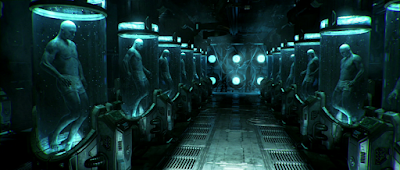
Along with the films directing being underwhelming, the script by Chad St. John based off a story by Stephen Hamel proves to be a mixed bag as it fairly develops its plot, along with posing clever questions for the audience to think about and answer for themselves. The script tackles issues pertaining to loss, grief, robotic soldiers with human minds, memories, deaf, grief, existence of a human soul, cloning, sacrifice, unethical medical practices, desperation, family, friendship, loyalty, desperation, survival, and starting over with a message that ultimately says if science is successful in bringing back the dead then the results will unquestionably be disastrous. In terms of exploring both it's plot and themes,
Replicas is a film that means well but feels underdeveloped as not enough development went into crafting its story.
Replicas wants to present audiences with both a unique and thoughtful narrative, though it never lives up to its promise of fully exploring its characters or story. The film clearly wants to be more than just mediocre, but its filmmakers never rise the end product over the level of being mediocre.
Replicas often feels like a painfully awkward mixture of monster horror classic
Frankenstein mixed with a teaspoon of
Ex Machina as audiences aren't sure whether to treat Keanu Reeve's characters motives as being helpful or the makings of a mad scientist. This often feels like a script, that ultimately has half of the effort put into it with the film as a whole lacking sufficient enough life to make it memorable. The scripts development of the films main characters feels both hit and miss with Reeve's character William appropriately being depicted as a thoughtful yet obsessive scientist, whose willing to go beyond the laws of nature to help others. The latter becomes evident with his resolve to bring his family back from the dead. The conflict between both William and his partner Ed over their experiment as well as William's willingness to break the rules to ensure it works and is kept a secret from everyone else is handled well. The subplot involving William's boss being the antagonist of the film comes across as feeling generic with him playing the typical corporate shell, whose scheming to see what experiments others have created in order to take credit for their own personal gain. There's nothing to his character that doesn't feel new or groundbreaking with the subplot involving William's family being taken hostage feeling lifted from previous cloning films such as
The 6th Day. What the writers do well with the character development is making William's character appear to be sympathetic at first with the audience feeling both his pain and loss, while later questioning his actions in regards to bringing his family back and wanting to hide the fact that he erased one of their family members from memory. The dialogue never comes across as being memorable and often falls into the category of being rather weak. What the script does well is explain certain aspects of the cloning process thoroughly such as the whole Lazarus/rebirth process. An example of certain aspects of the plot making little sense or representing sloppy writing are the Reeves character having four pods and only being able to bring back three of his family members with him being forced to not include his youngest daughter. In an effort to cover up his shortcomings with the rest of the family members (Now as clones), he erases Zoe's existence from their minds. This subplot doesn't make much sense when the audience figures that everyone outside of the house who knows of Zoes existence would be questioning her whereabouts. How does Reeve's character plan on keeping this from them the rest of their lives as they're bound to discover the truth at some point? The script for
Replicas is full of interesting ideas and concepts, though feels as if it wasn't fully thought out to make total sense.
In the end, it's not the fault of the actors (Reeve's and the others make the most of their parts) nor the production team for this films shortcomings in telling what feels like a compelling science fiction story, it's the lack of creativity behind the films directing and unbalanced writing that ultimately bring it down from greatness to just being watchable yet forgettable entertainment. The science behind the films plot doesn't appear to make much sense as Reeve's character is seemingly able to turn his garage into a lab overnight, or the story moving from robots to clones without a smooth enough transition from one to the other. The scripts timeline also doesn't make much sense as within a three week time frame, William is able to somehow steal all of the government equipment and change all of the research done prior to that point. The concept for
Replicas is not a bad one, it's actually quite interesting and good but the execution of it makes it tough for audiences to take seriously at times. That's a shame in itself because the film delivers a strong message to audiences regarding the consequences of human cloning with the results ultimately being dangerous if science allows it to happen. The films most noblest trait is its ability to question our ethics and morals regarding a scientific scenario, that doesn't seem too far-fetched in today's world. It's too bad that the filmmakers didn't carry with them the conviction to follow though on developing the story as thoroughly as it could've been explored.
Replicas serves as being a classic hollywood case of a film possessing a strong enough concept to make for a solid movie, with the film ultimately disappointing due to its lackluster execution. Despite all of its faults, the film isn't entirely horrible as both its plot and performances are entertaining enough to make it watchable at the very least. Though for a film like
Replicas that has such an intriguing plot, the end result should be much more satisfactory than just forgettable entertainment. Fans of the science fiction genre are better off searching for stronger films that explore the whole cloning subplot as
Replicas gives audiences sprinkles of the great SCI-FI story that it could've and should've been, but ultimately wasn't.
Final Verdict: For those who want a compelling science fiction style story revolving around cloning, one is better off watching
The 6th Day with Arnold Schwarzenegger or Michael Bay's
The Island instead. Given the potential that
Replicas had, that's a shame because the film ultimately could've been so much more.
